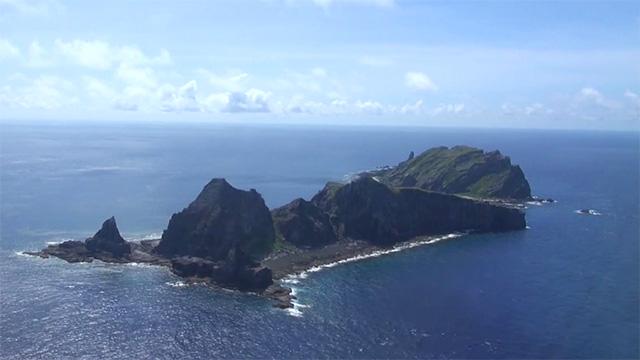Japan controls the islands. China and Taiwan claim them. The Japanese government maintains that they are an inherent part of Japan's territory in terms of history and international law. It says no issue of sovereignty exists to be resolved.
Japan's nationalization of the islands drew violent reactions across China.
People burned and looted Japanese supermarkets and factories.
Chinese government ships have been spotted in the area more frequently since Japan nationalized the islands. Japan Coast Guard patrols the area to warn the ships not to intrude into Japan's territorial waters.
In November of last year, Chinese officials unilaterally declared an air defense identification zone over the East China Sea. Some parts of the zone overlaps that of Japan.
This May and June, Chinese fighter aircraft flew unusually close to Japanese Self-Defense Forces planes. Officials in Tokyo lodged protests. They said the incidents were extremely dangerous.
Officials from both countries have explored the possibility of a summit. Former Japanese Prime Minister Yasuo Fukuda spoke with President Xi in July. Prime Minister Abe showed he was ready.
"I want to have summit talks on the sidelines of the APEC meeting in November. The door for dialogue is always open, and I hope the Chinese side takes the same stance"
Shinzo Abe / Japanese Prime Minister
In August, the foreign ministers of the two countries spoke for the first time since Abe and Xi took office. Afterwards they exchanged views on the possibility of a summit.
A couple of days before the APEC summit, both countries jointly released an agreement on efforts to develop a mutually beneficial strategic relationship.
On Saturday the foreign ministers of the two countries agreed that they would resume dialogue in a number of areas.
